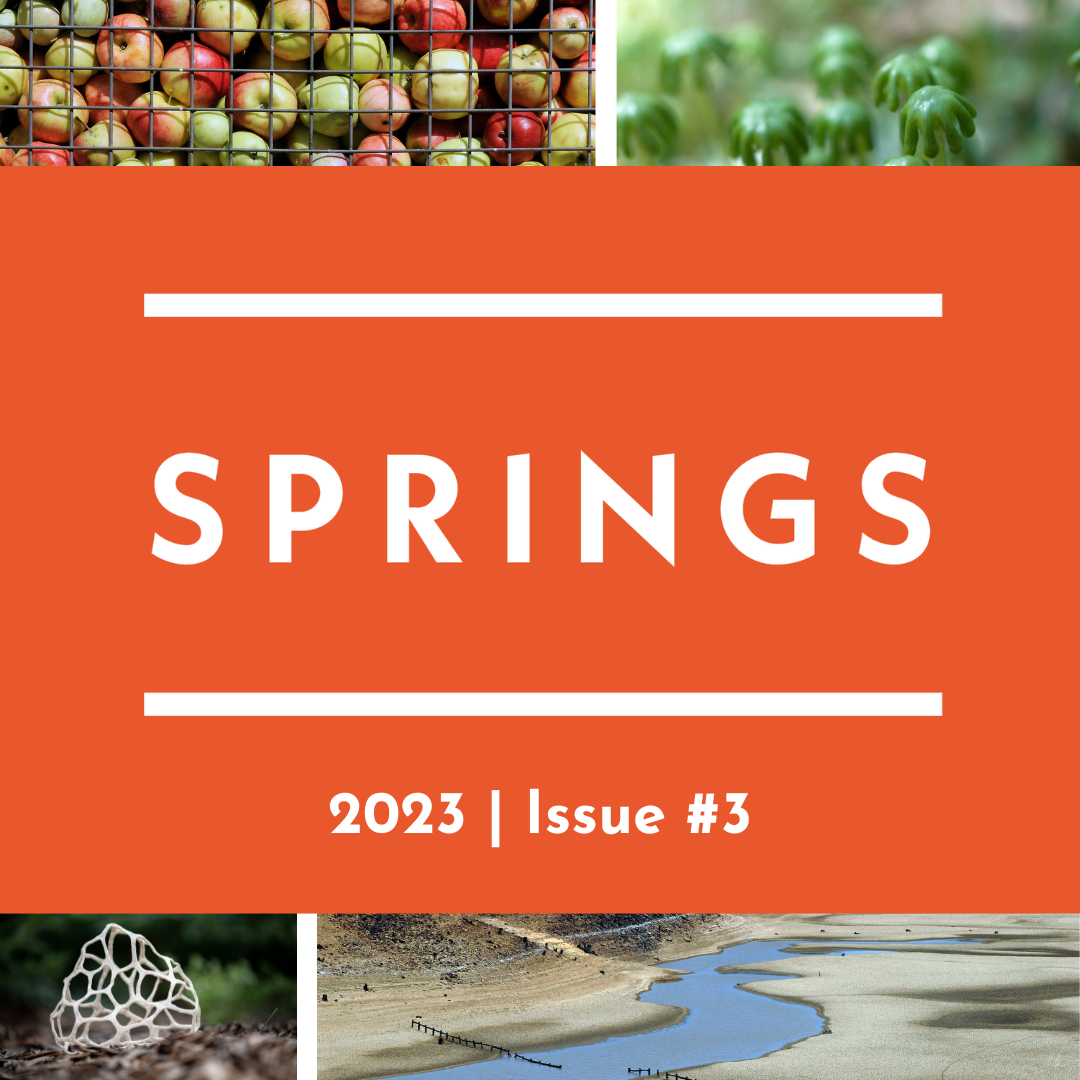Third Issue of Springs: The Rachel Carson Center Review
23.05.2023
The RCC is delighted to announce the release of the third issue of Springs: The Rachel Carson Center Review, an open-access online publication surveying the interrelationship between social and environmental changes. Authors and perspectives from Colombia, Ethiopia, Australia, Germany, Sweden, and the US contribute to a global discussion of the environmental crisis, providing fresh insights and food for thought.
This issue includes peer-reviewed essays on heat and hurricanes, an interview on plants in urban environments, reflections on transactional thinking about the environment, and a creative piece that offers five ways to look at a jump in the lake.
Inspired by the meeting between Indigenous representatives and the current Colombian government, Paula Ungar’s reflective essay, “’We Have Always Known’: On the Trails of People, Plants, and Humboldt,” considers Alexander von Humboldt’s observations and a more deeply rooted wisdom.
Tom Princen’s “Weathered History: Galveston and Extreme Events” explores the effects of hurricanes on the region of Galveston, Texas and takes a long look—from the displacement of First Peoples through the development of the oil industry and the flooding of an exclusive housing subdivision—and questions what an adaptive future would look like.
Does a vegetarian diet balance out flight emissions? In “I Still Do a Lot of Good,” Nina Wormbs reports on reasoning in the face of climate change and reveals the faulty logic of “latent budget thinking” when it comes to the environment.
In “Roots through Asphalt,” landscape historian Sonja Dümpelmann and editor Pauline Kargruber discuss the multifaceted history of plants and trees in urban spaces and their integral roles in human and nonhuman well-being.
Steve Mentz takes the reader with him as he revisits the lake near the Rachel Carson Center’s Landhaus in “Five Ways of Seeing the Steinsee,” a creative reflection in poetry and prose.
Melanie Arndt’s “The Heat Is On!,” explores turn of the twentieth century technologies that created central heating, its societal impacts, and its limits in a world vulnerable to climate change and societies seeking protection from wartime aggression.
Helen Tiffin’s opinion essay, “Human Overpopulation: The Elephant in the Greenhouse,” makes the case for inhabitants of the Global North to limit human reproduction, not draconically, but voluntarily, in “a radical reorientation towards life on a shared planet.”
In “The Slow Death of an Ethiopian Lake,” Hayal Desta demonstrates the effects of water-grabbing with a focus on the international flower industry as it threatens a precious resource to the local communities—a subtle, invasive dynamic with dire environmental repercussions.
Paul Sutter’s “The Isthmus of Panama and the Knowledge Anthropocene” combines the recovery of environmental history with a “sense of the world as a multiplying series of archives.” He establishes the term “Knowledge Anthropocene” to describe an intellectual enterprise that has changed our understanding of earth systems and our role within them.
Springs also brings together writing from other RCC publications. Its archive curates articles that were published in the open-access online and print journal RCC Perspectives (2010–2020), in the blog Seeing the Woods (2012–2021), and in the peer-reviewed online journal Arcadia: Explorations in Environmental History.


